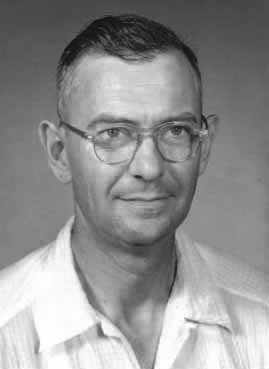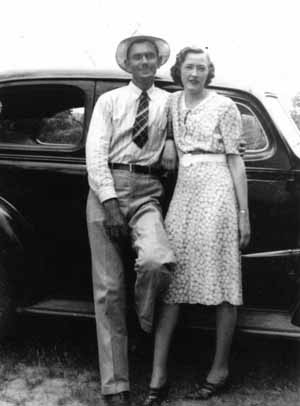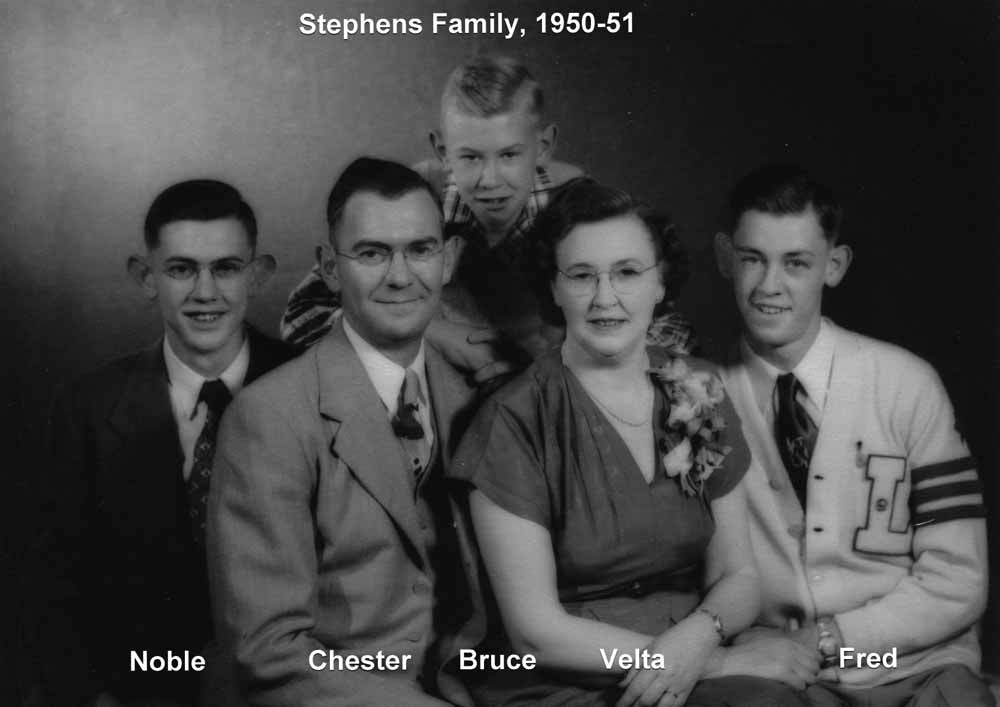My Father Worked at the Arsenal
by Fred Stephens

Chester Stephens, 1955
My father, Chester Stephens, worked at the Milan Arsenal during most of the Second World War. Though my memory of his employment during that period is limited, I believe he started work there in the summer of 1941, following a teaching career of 15 years at a number of elementary schools in western Henderson County. He is listed in as a teacher at Juno School for the 1940-41 school year. Warren Holmes, another teacher living in the Poplar Springs community, also left the profession to work at the Milan Arsenal. He is listed as the teacher at Ollie’s Grove for the 1940-41 year. My first memory pertinent to the Milan Arsenal is of being in the garden with Dad, Mother, and Noble when Dad opened a letter offering him a job as a guard there. I have the impression that it was not the job he’d applied for, but remember his saying “I think I’ll just take it” or words to that effect.
At the time, gasoline and tires were rationed, and a lot of people traveled from the county to Milan in car pools. Dad drove part of the time. Uncle Hooper Fiddler stayed with us for at least a short time while working as a guard at Milan in order to be closer to the plant and to have transportation. At some point he and Aunt Inez rented rooms or a house at the Andy Jackson place.
The arsenal operated three shifts, so Dad, like others, often needed to sleep during the daytime. My memories include mother’s admonitions for us boys to play quietly around the house, and the difficulty in doing so. I don’t remember any physical punishment for waking Dad during his attempts to sleep in the daytime, but I do remember being “talked to” by Dad – which was worse!
The guards were required to patrol the perimeter of the area, which apparently included grass and weeds. My most traumatic memory of this period is of Dad struggling to breathe at night during at least one spring or summer. He developed asthma or at least severe allergies, but kept working anyway. I remember lying awake listening to Dad gasping and wheezing, and fearing that he would die. Since there was no telephone in the community, calling the doctor wasn’t an option.
Apparently some of the guards wouldn’t have qualified as sharpshooters. Dad said that the Sergeant told them to aim at him if he tested them during their rounds by not responding to a challenge. He thought he’d be less likely to be hit if they aimed at him rather than fire warning shots!
Sometime near the end of the war, Dad was reassigned as a “gang boss”. This involved supervising a group of men (all African-Americans) who moved boxes and pallets of munitions. Dad told of a planned prank on one member of the group who went to sleep on the stacks of boxes on a cart at every break. The plan was to wake him rudely by rolling the cart into a wall! The plot was foiled when Dad stopped whistling and the victim awoke suddenly. He said that he knew everything was alright as long as “Mr. Chester” was whistling, and that something was wrong when he stopped.

Chester and Velta (Fiddler) Stephens
A benefit of Dad’s employment at the Milan Arsenal was that for the first time he seemed to have some money. He and Mom were able to hire Uncle Bill White to build a fourth room on the house at Poplar Springs. Dad also bought a gasoline or kerosene powered washing machine, and a kerosene cooking stove, but I can’t remember the timing of these purchases. We still had to draw water from the well for washing clothes, but mother didn’t have to use the scrub board, and we didn’t have to chop “stove wood”.
At the end of the war, Dad, Uncle Hooper, and most of the others employed at the Milan Arsenal were terminated. Uncle Hooper took a job as a clerk at U-Tote-Em store, and Dad was employed as a parts clerk for Long Equipment Company. I think their starting salaries were either $20 or $25 per week. I don’t know why Dad did not return to teaching, and have no memory of that option being discussed. Dad apparently had started teaching upon graduation from high school, and I perceive that he was an excellent teacher. He never lost his interest in education and was persuaded to serve one term on the school board during the initial period of consolidation of schools in the county. He confided that this was not a pleasant experience, and he did not seek a second term.
I have not researched the subject, but I suspect that, like Dad, a large number of male teachers left the profession during the WWII years, and did not return afterward.

